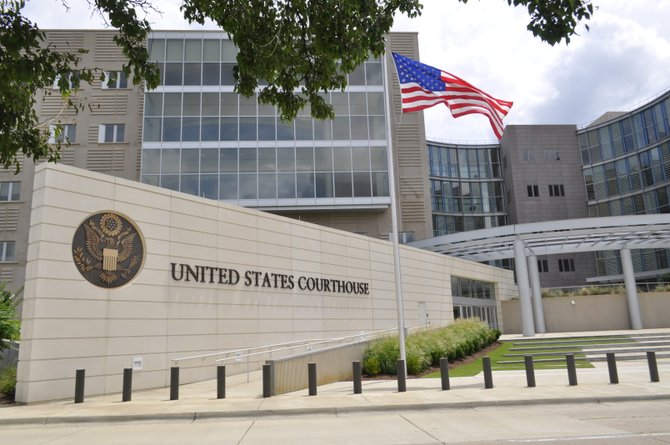The case began with this 2011 letter of findings. The United States and the State of Mississippi engaged in negotiations from 2012 through 2015, at which time the negotiations failed. The United States then sued Mississippi in 2016.
The State lost this lawsuit in September 2019 after a month-long trial in June 2019 in the court of Judge Carlton Reeves. In February 2020, Judge Reeves appointed Dr. Michael Hogan as Special Master in the case to help the two sides (US DOJ and the State of Mississippi) craft a remedy to address the problems that the lawsuit brought to light.
The two sides were unable to agree upon a remedy. On February 24, 2021, Judge Reeves ordered the State of Mississippi to submit, by April 30, its proposed plan to address the ways the State was found to be in violation of the ADA. The United States Department of Justice has 21 days to respond and the Special Master’s input is requested by June 4. A hearing on the remedy is set for July 12 at 9:00 a.m. in Courtroom 5B of the Federal Courthouse in Jackson before Judge Reeves.
The State of Mississippi’s response to the court’s order was posted on April 30. It asserts three points and then shares arguments to support those points:
“First, in submitting the Report, Mississippi respectfully maintains and preserves the arguments that it has made in this case, does not waive or forfeit any of its arguments, and maintains that it is not liable for (among other reasons) the reasons summarized on pages 89-90 of Mississippi’s Proposed Findings of Fact and Conclusions of Law (ECF 232).
Second, even if the Court remains of its prior view on liability based on the evidence at trial, the Court still should order no relief because Mississippi is now in substantial compliance with Title II of the Americans With Disabilities Act, 42 U.S.C. §§ 12131-12134 (ADA), and has addressed or will imminently address the violations the Court believed to exist. The Report describes Mississippi’s current compliance actions and commitments. The Court should not order any relief, given these actions and commitments, which are summarized in the Report and explained below, but instead enter a final judgment of dismissal with prejudice.
Third, if the Court does decide to order relief despite those first two points, the Court should order relief in light of certain important considerations…As shown in the Report and as explained below, Mississippi achieved and implemented a great deal of change since the close of evidence and since the Court issued its Opinion (ECF 234) in September 2019. Any relief ordered must account for that change – as the Court recognized on page 60 of its Opinion (ECF 234). Further, in ordering a remedy under the ADA, the Court should not read or apply the ADA (including issuing a remedy under it) in a way that would create serious and ongoing federalism problems. The Court should therefore not issue sweeping relief that invades the inner, day-to-day workings of State government.”
From a lay perspective, it seems that the State is making these points: 1) It is maintaining the same position that it had at trial that it is not in violation of the ADA (this may mean that the State is planning to appeal depending on Judge Reeves final ruling), 2) That even if the State was in violation of the ADA during the time covered by the lawsuit (up to December 2018), it has done so much to improve the mental health system since then that it no longer is in violation, and 3) If Judge Reeves does decide that Mississippi’s mental health system needs to make further changes this should be done in a way that does not allow the federal government to overreach into “the inner, day-to-day workings of State government.” It is possible that this point includes the State’s position that any proposed remedy should not be overseen by an independent monitor.
The response is followed by Mississippi’s Report on what services it will add, and the report is supported by the Declaration of Wendy Bailey, executive director of the Department of Mental Health. In our initial reading of these documents, we did not see information on how the quality and effectiveness of these services would be measured, how we would know if services led to fewer admissions to the state hospitals, and how the satisfaction of people receiving these services would be determined.
We encourage all of you to read through this information. If you have feedback or questions for either side in US v. Mississippi, here is their contact information:
Doug T. Miracle, Civil Litigation
Office of Attorney General Lynn Fitch
601.359.3680
doug.miracle@ago.ms.gov
Sarah L. Malks
Outreach Specialist
Civil Rights Division, US Department of Justice
iPhone 202.598.5344
Sarah.Malks@usdoj.gov


Pingback: Mental Health Updates: DMH's Olmstead Page and News Articles - Families as Allies
Pingback: Update to US v State of Mississippi: DOJ Responds to Parts of State Remedial Plan
Pingback: United States Submits Its Proposed Remedial Plan for Mississippi's Mental Health System
Pingback: United States Submits Its Proposed Remedial Plan for Mississippi’s Mental Health System | My Love Link - Health